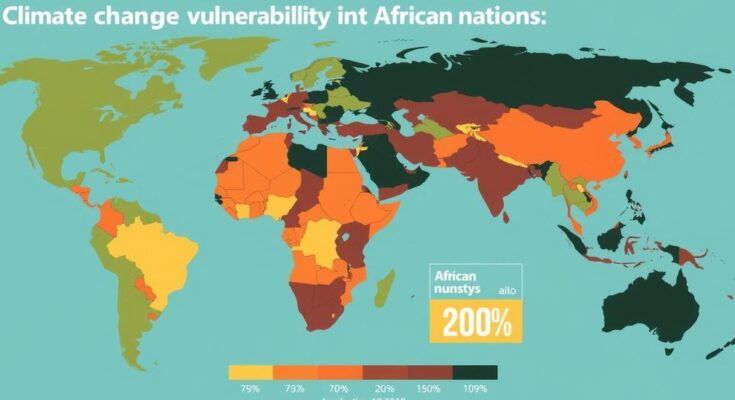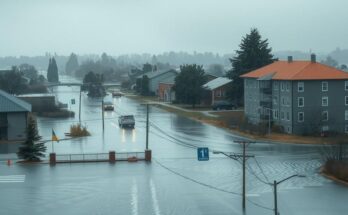The ND-GAIN index for 2021 assesses African countries’ vulnerability and readiness to climate change, revealing significant disparities in their capacity to respond to climate challenges. The data indicate a pressing need for effective adaptation strategies, climate finance, and resilient policies to mitigate the social and economic impacts of climate-related events. The statistics invoke an urgent call for developing tailored approaches that cater to each nation’s unique context in the face of ongoing climate threats.
The index assessing vulnerability and readiness to climate change across African nations reveals critical insights into how different countries prepare for and are affected by climate-related challenges. According to the ND-GAIN index for 2021, some nations exhibit significant preparedness while others face profound vulnerabilities. This disparity underscores the urgent need for tailored approaches to climate resilience that take into account the unique contexts and challenges each country faces. The statistics and data available highlight ongoing climate-related disasters, economic repercussions, and the social impacts stemming from climate change, such as increased displacement and poverty. Furthermore, the role of climate finance in mitigating these effects remains a pertinent aspect to consider in addressing future challenges. Countries must prioritize effective adaptation strategies and enhance their capacity to respond to the ongoing impact of climate change, as these efforts are pivotal in safeguarding their economies and communities from further degradation.
Climate change poses a formidable challenge globally, with Africa being one of the most affected continents. Various countries within Africa exhibit differing levels of vulnerability and readiness to cope with the repercussions of climate change as assessed by the ND-GAIN index, which encapsulates the unique socio-economic and environmental contexts of each nation. This assessment not only sheds light on the current state of preparedness but also emphasizes the necessity for robust climate strategies, as the continent faces an array of environmental challenges ranging from increased frequency of natural disasters to the adverse effects on economic stability and human welfare. The statistics encapsulate critical data on emissions, economic losses due to climate change, and the pressing need for climate finance, highlighting the multifaceted nature of the climate crisis in Africa.
In conclusion, the ND-GAIN index for 2021 serves as a crucial indicator of the varying degrees of vulnerability and readiness to climate change among African nations. The need for strategic interventions, improved climate finance, and adaptive measures is essential for mitigating the adverse effects of climate change. As nations work towards building resilience, it is imperative to utilize available data and insights to inform policies and actions that prioritize community well-being and economic sustainability. Ultimately, addressing the challenges posed by climate change in Africa requires a collaborative global effort and a commitment to long-term solutions.
Original Source: www.statista.com




